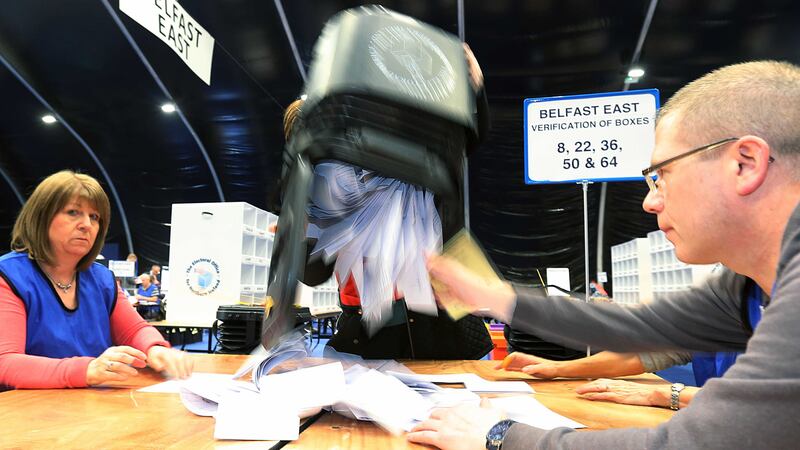WHEN about half the electorate abstains from voting on a bright spring day and Gerry Carroll tops the poll in West Belfast, you can only assume that Stormont's failure to deliver has finally come home to roost.
It may not quite be a northern uprising, but the election results show that while Sinn Féin and the DUP will continue to dominate the new executive, they will now govern with a bit less confidence than previously.
The long-term threat to their power comes not so much from the other established political parties but, as this column suggested last week, from the Greens and the left. The inevitable conclusion on the overall electoral results is that an increasing number of voters now recognise that sectarian politics, however well disguised, has hindered our economic and social development.
So, as the make-up of the new assembly becomes clearer, the key question is: what will Stormont do now - and, more importantly, what should it do? Although in theory the parties will sit down next week and plan our future well-being, the truth is that the two main parties have already agreed what to do, in advance of the election results.
Many of their pre-election promises are just political candyfloss. In an amazing contrast with its comprehensive manifesto for the Dáil (where it will not enter government) Sinn Féin's back-of-an-envelope plan for government in Stormont was so brief that it read like an appendix to the DUP's manifesto.
In political terms, SF's ten-point manifesto (amounting to just 80 words) might suggest an attempt to avoid internal party divisions over policy-making (particularly on corporation tax). In administrative terms, it indicates that we are probably the only place in Europe where a government is formed before an election, rendering a manifesto unnecessary.
The view that the programme for government has already been agreed is supported by the fact that many Stormont departments already appear to have an outline of what they will do under the new administration. This suggests that the two main parties have also agreed on who will take which ministries, a conclusion which is reinforced by the uncanny similarities between their two manifestos (or one manifesto and an 80-word press release.)
They both promise to create 50,000 new jobs (without any mention of potential job losses, including their run-down of the public sector); an additional £1 billion for health (with no suggestion where it might come from); billions more for infrastructure (again with no funding source identified) and huge investment in housing, based on more mythical money.
So while People Before Profit makes today's news, it will find it difficult to make a difference in this assembly, as Sinn Féin and the DUP have already decided what to do. In this country, election counts do not really count. PBP's presence in Stormont, however, will have a huge impact on the next election.
So what should Stormont do? It could start by replacing its Programme for Government with a Programme for People (PfP). If schools are pupil-centred and hospitals are patient-centred, why is Stormont not people-centred?
The first paragraph in the PfP should be an undertaking by SF and the DUP to stop congratulating themselves for making political progress, since they jointly perverted progress during 30 years of sectarian violence. The second paragraph should be a promise by the other three parties to either enter government (and stop complaining how they are being treated) or enter opposition.
The document must then outline what Stormont is going to do and why. In education, for example, it must stop the decimation of schools and universities. If it cannot explain why, it is in serious need of education.
Then the document needs to spell out who will implement the new policies, where, when and how. The next section should explain how much each policy will cost and where the money will come from. The final part should identify potential risks and how they will be managed. If every public body (and private business) uses this rough format for corporate planning, why can Stormont not do the same?
The answer is that Stormont does not have to deliver, because electoral support is not related to the two main parties' performance in government. However, that may be about to change, particularly for Sinn Féin.
This week's modest change in the electoral landscape suggests that there is a growing demand for the main political parties in Stormont to stop governing in their interests and start governing in ours. The election results show that they have one more term in office to make that change.









